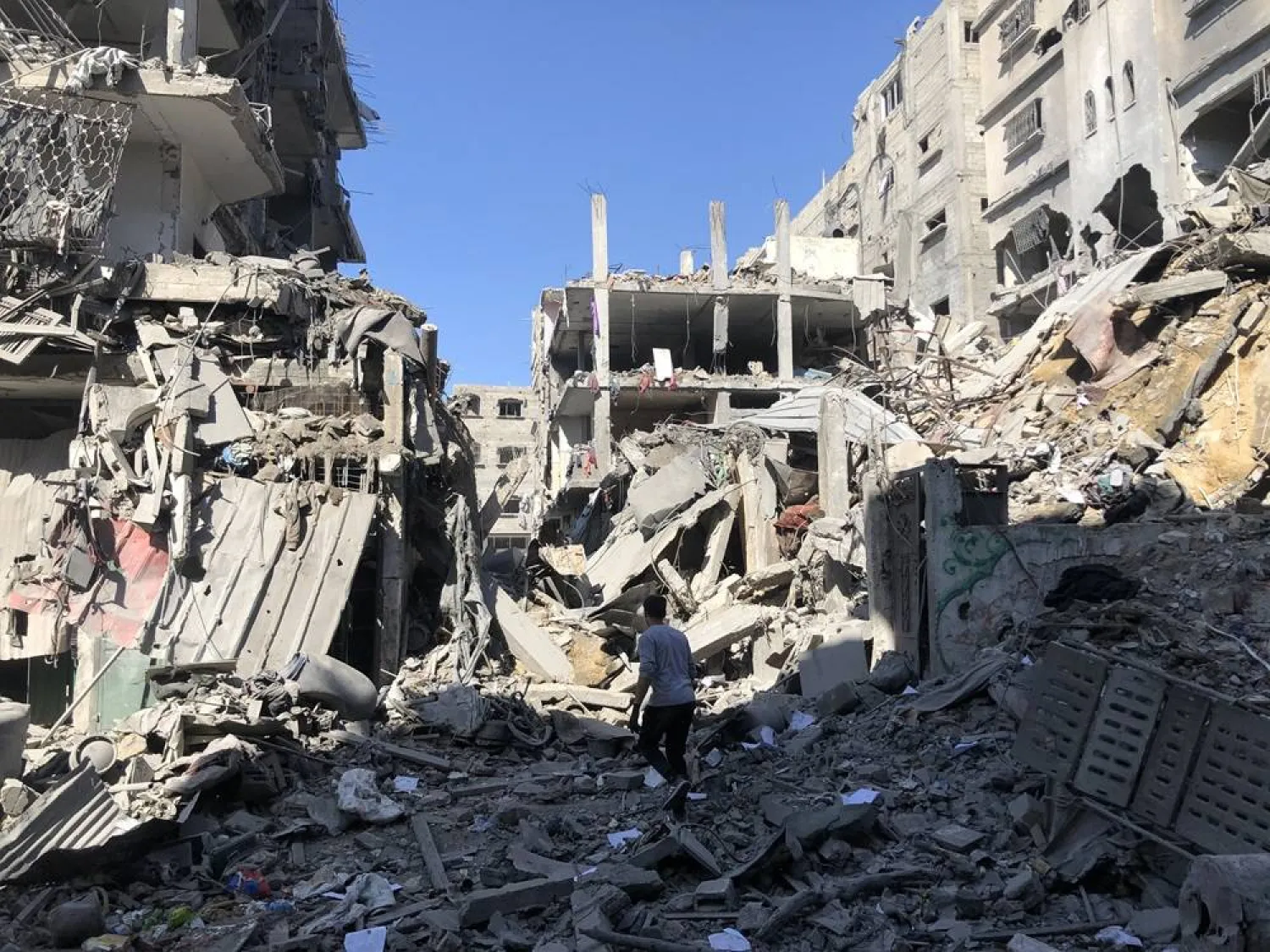A series of Israeli military strikes across the Gaza Strip killed at least 20 people on Wednesday, medics said.
Eight people were killed in a strike in the Salateen area of Beit Lahia in the north, close to where the Gaza health ministry said at least 93 were killed or missing in an Israeli airstrike that struck a multi-floor house on Tuesday.
The United States called that attack "horrifying".
There was no immediate Israeli comment on either strike.
Gaza's emergency service said its operations had come to a halt because of the more than three-week Israeli assault into northern Gaza. Israel says its campaign is to destroy Palestinian armed group Hamas, whose fighters had regrouped to the area in the year-long war.
The Israeli army sent tanks into Beit Lahia, Beit Hanoun and Jabalia, the largest of Gaza's eight historic camps and the focus of the new military offensive.
Meanwhile, Israeli strikes in southern and central Gaza killed at least seven Palestinians earlier on Wednesday, medics said. In Gaza City's Sheikh Radwan neighborhood, an Israeli strike killed five people and wounded others near a clinic, medics and residents said.
Hamas' Oct. 7, 2023 attack on Israel killed 1,200 people and more than 250 hostages were captured and taken into Gaza, according to Israeli tallies.
The death toll from Israel's retaliatory air and ground onslaught in Gaza has exceeded 43,000, the Gaza health ministry says.









